This article was medically reviewed by Roy Nattiv, MD. Dr. Roy Nattiv is a Board-Certified Pediatric Gastroenterologist in Los Angeles, California. With over 20 years of experience he specializes in a broad range of pediatric gastrointestinal and nutritional illnesses such as constipation, diarrhea, reflux, food allergies, poor weight gain, SIBO, IBD, and IBS. He completed his pediatric residency at the Children’s Hospital at Montefiore, Albert Einstein College of Medicine in New York, and his fellowship at the University of California, San Francisco (UCSF). While at UCSF, he was a California Institute of Regenerative Medicine (CIRM) fellowship trainee and was awarded the North American Society for Pediatric Gastroenterology, Hepatology, and Nutrition (NASPGHAN) Fellow to Faculty Award in Pediatric IBD Research. Dr. Nattiv received his undergrad degree from the University of California, Berkeley, and his medical degree (MD) from the Sackler School of Medicine in Tel Aviv, Israel.
There are 10 references cited in this article, which can be found at the bottom of the page.
This article has been viewed 30,356 times.
Pancreatitis occurs when your pancreas, the large gland located behind your stomach, becomes inflamed or swollen. Your pancreas serves many important purposes—such as producing enzymes that help you digest food and releasing hormones that help your body to process sugar. Because this organ serves crucial functions, it’s essential to diagnose pancreatitis early.[1] To receive a diagnosis, you’ll need to monitor your symptoms, seek medical attention, and coordinate medical tests. Once your test results come in, you’ll follow up with your physician, who will determine if you have pancreatitis.
Steps
Recognizing the Symptoms
-
1Look out for upper abdominal pain associated with acute pancreatitis. When the pancreas becomes suddenly inflamed, you'll experience discomfort and pain in your upper abdomen—the region above your belly button and below your chest. The pain often intensifies shortly after eating, and you may also experience nausea and vomiting.[2] [3]
-
2Recognize other symptoms caused by acute pancreatitis. If you're suffering from this condition, you'll appear and feel quite ill. In addition to abdominal pain, you may have a fever and a rapid pulse.
- In rare and severe cases, an individual may experience dehydration, low blood pressure, organ failure, and shock.
Advertisement -
3Notice the signs of chronic pancreatitis. Chronic cases of pancreatitis develop over a prolonged period of time—over the course of months or even years. In chronic cases, you might experience a dull pain in the upper abdominal region that becomes persistent, weight loss that you cannot otherwise explain, and stools that appear oily or abnormally smelly.[4]
-
4Be aware of the risk factors associated with pancreatitis. Gallstones are a common cause of pancreatitis as is recent abdominal surgery, infection, and abdominal injury. Common antibiotics like Tetracycline and Bactrim can increase your risk for pancreatitis. Smoking cigarettes or consuming large quantities of alcohol also increases your chance of developing this condition.
- Less common medications that can cause pancreatitis include: Azathioprine, Thiazide, Dideoxyinosine, Sulfasalazine, Valproic acid, and Pentamidine.[5]
- A family history of pancreatitis increases your chances of developing it.
- Rare medical conditions that can predispose people to pancreatitis include: cystic fibrosis, hypercalcemia, hyperparathyroidism, hypertriglyceridemia, and pancreatic cancer. Thus, preventing pancreatic cancer and other underlying conditions can also help prevent pancreatitis.[6]
-
5Keep a list of any symptoms that you experience. Write down your symptoms, so you can share them with your doctor. Record the dates you experienced them as well as their intensity.[7]
- Also note any preexisting conditions that apply to you and remember to share that information with your physician.
Seeking Medical Care
-
1Schedule an appointment with a doctor as soon as possible. If you’re suffering from persistent abdominal pain that lasts for more than a few days, or if your abdominal pain is worsening steadily over the course of a day, you’ll want to make an appointment to visit a doctor immediately. It’s best to catch pancreatitis early since it can cause life-threatening complications if left untreated.[8]
- Start by visiting your primary care physician (PCP). Make sure to arrive early to your appointment and bring your list of symptoms.
- If you don't have a doctor, go to a walk-in clinic.
-
2Get emergency medical help if you're in severe pain. If you find that your upper abdomen feels so painful that you cannot sit still comfortably, or if you cannot seem to find a comfortable position, seek medical attention immediately. Either call 911 or travel to your nearest emergency room (ER).
-
3Visit a gastroenterologist if you get a referral. Gastroenterologists are specialists who treat conditions that impact the stomach, intestines, liver, pancreas, gallbladder, and related ducts. You may need to see a specialist to determine what tests to have run.
- If a doctor gives you a referral to one, make the appointment immediately.
- If you know you're at risk for pancreatitis and want to see a gastroenterologist without a referral, check with your insurance company to see if the visit will be covered.
-
4Get blood tests to evaluate the functioning of your pancreas. If you have pancreatitis, your blood will contain high levels of digestive enzymes such as lipase, and there may be other metabolic abnormalities such as abnormal glucose or sodium levels. Ask your doctor what lab to visit and go have your blood drawn.
- You can usually go directly to a lab on the same day without making an appointment.[9]
- Blood tests may not always be specific to issues with your pancreas; routine tests may be ordered to evaluate your overall health.
-
5Give a stool sample for testing. In chronic or ongoing pancreatitis, your body isn’t able to effectively absorb the nutrients you eat, so you will have higher levels of fat in your stool. To provide a stool sample, you will visit a laboratory and they will give you a stool test kit to use at home the next time you go to the bathroom. Follow all the directions.[10]
-
6Receive an abdominal ultrasound to check for gallstones and swelling. This test uses sound waves that bounce off of your organs—creating an echo that is then transformed into a picture of that region of your body. An abdominal ultrasound can locate any potential gallstones that could be causing your pancreatitis.[11]
- This test is readily available and relatively affordable. If you have a history of gallstones, your doctor may choose to start with this test.
-
7Get an endoscopic ultrasound (EUS) to look for swelling and blockages. This test uses a thin and flexible tube that is put down you’re your throat and into your gastrointestinal tract. The EUS creates visual images of your pancreas and bile duct to determine if there are blockages.[12]
-
8Visit a radiology center for a computerized tomography (CT) scan. When you go to get a CT scan, you simply lay on a table on your back and relax as the table slides into a machine that’s shaped like a donut. The test involves taking a painless x-ray that creates a 3D picture of your organs for your doctor. From this picture, your doctor can determine if you have gallstones as well as the extent of any damage to the pancreas.[13]
-
9Undergo magnetic resonance imaging (MRCP). These tests create high resolution images that allow your doctor to visualize any abnormalities in your gallbladder, pancreas, or related ducts. Before the test begins, a technician will inject you in the arm with a small about of dye that will illuminate your organs for the picture. Then you’ll lie on your back inside a cylinder, tube-shaped machine.[14]
- If you are claustrophobic, you may have the option to take medication that will help to sedate or calm you for this procedure.
Following up with Your Physician
-
1Attend your follow up appointments. If you had tests run, then you should have already scheduled an appointment with your PCP and other medical specialists to go over the results. Make sure that you make it to appointments and try to bring a friend, family member or caregiver with you to help process any news and plan for treatments if necessary. During this appointment, ask questions for clarification. Consider asking:
- ”Which test results indicated that I have pancreatitis?”
- ”Are you completely sure this is pancreatitis, or is there something else we need to rule out?”
- ”What are my treatment options?”
- ”Do the treatments have any side effects?”
- ”Can I make any lifestyle changes to help my recovery?”
-
2Seek additional medical opinions if necessary. If you doubt the diagnosis you received or want a second opinion about treatment options, it’s always your right to seek additional opinions from other physicians. However, if your doctor indicates that you have a severe condition that requires emergency care, do not delay getting treatment.[15]
- You can always go back to your PCP or walk-in clinic for a new referral. Or call your health insurance company to find information about other specialists in your plan.
- In life-threatening situations, it’s important to avoid delays. If you’re hospitalized for your condition, you’ll have the chance to consult with multiple doctors once at the hospital.
-
3Seek support from others if you receive a diagnosis. If you receive a serious or distressing diagnosis, tell those closest to you. Your support network can help you navigate the treatment process and help you take care of regular responsibilities that you may be temporarily unable to meet. If you feel alone, ask your doctor for resources that offer support or search online for a support group.[16]
Expert Q&A
Did you know you can get expert answers for this article?
Unlock expert answers by supporting wikiHow
-
QuestionHow can you tell the difference between acute and chronic pancreatitis?
 Roy Nattiv, MDDr. Roy Nattiv is a Board-Certified Pediatric Gastroenterologist in Los Angeles, California. With over 20 years of experience he specializes in a broad range of pediatric gastrointestinal and nutritional illnesses such as constipation, diarrhea, reflux, food allergies, poor weight gain, SIBO, IBD, and IBS. He completed his pediatric residency at the Children’s Hospital at Montefiore, Albert Einstein College of Medicine in New York, and his fellowship at the University of California, San Francisco (UCSF). While at UCSF, he was a California Institute of Regenerative Medicine (CIRM) fellowship trainee and was awarded the North American Society for Pediatric Gastroenterology, Hepatology, and Nutrition (NASPGHAN) Fellow to Faculty Award in Pediatric IBD Research. Dr. Nattiv received his undergrad degree from the University of California, Berkeley, and his medical degree (MD) from the Sackler School of Medicine in Tel Aviv, Israel.
Roy Nattiv, MDDr. Roy Nattiv is a Board-Certified Pediatric Gastroenterologist in Los Angeles, California. With over 20 years of experience he specializes in a broad range of pediatric gastrointestinal and nutritional illnesses such as constipation, diarrhea, reflux, food allergies, poor weight gain, SIBO, IBD, and IBS. He completed his pediatric residency at the Children’s Hospital at Montefiore, Albert Einstein College of Medicine in New York, and his fellowship at the University of California, San Francisco (UCSF). While at UCSF, he was a California Institute of Regenerative Medicine (CIRM) fellowship trainee and was awarded the North American Society for Pediatric Gastroenterology, Hepatology, and Nutrition (NASPGHAN) Fellow to Faculty Award in Pediatric IBD Research. Dr. Nattiv received his undergrad degree from the University of California, Berkeley, and his medical degree (MD) from the Sackler School of Medicine in Tel Aviv, Israel.
Board Certified Gastroenterologist Both acute and chronic pancreatitis will present with pain. Acute pancreatitis is simply the first few episodes of pancreatitis that you might have. Very often, those episodes are somewhat more painful than those individuals who have chronic pancreatitis. With chronic pancreatitis, you start to see almost permanent changes with the pancreas. So, in addition to just having pain, the pancreas will function less efficiently.
Both acute and chronic pancreatitis will present with pain. Acute pancreatitis is simply the first few episodes of pancreatitis that you might have. Very often, those episodes are somewhat more painful than those individuals who have chronic pancreatitis. With chronic pancreatitis, you start to see almost permanent changes with the pancreas. So, in addition to just having pain, the pancreas will function less efficiently. -
QuestionWhat does your pancreas do?
 Roy Nattiv, MDDr. Roy Nattiv is a Board-Certified Pediatric Gastroenterologist in Los Angeles, California. With over 20 years of experience he specializes in a broad range of pediatric gastrointestinal and nutritional illnesses such as constipation, diarrhea, reflux, food allergies, poor weight gain, SIBO, IBD, and IBS. He completed his pediatric residency at the Children’s Hospital at Montefiore, Albert Einstein College of Medicine in New York, and his fellowship at the University of California, San Francisco (UCSF). While at UCSF, he was a California Institute of Regenerative Medicine (CIRM) fellowship trainee and was awarded the North American Society for Pediatric Gastroenterology, Hepatology, and Nutrition (NASPGHAN) Fellow to Faculty Award in Pediatric IBD Research. Dr. Nattiv received his undergrad degree from the University of California, Berkeley, and his medical degree (MD) from the Sackler School of Medicine in Tel Aviv, Israel.
Roy Nattiv, MDDr. Roy Nattiv is a Board-Certified Pediatric Gastroenterologist in Los Angeles, California. With over 20 years of experience he specializes in a broad range of pediatric gastrointestinal and nutritional illnesses such as constipation, diarrhea, reflux, food allergies, poor weight gain, SIBO, IBD, and IBS. He completed his pediatric residency at the Children’s Hospital at Montefiore, Albert Einstein College of Medicine in New York, and his fellowship at the University of California, San Francisco (UCSF). While at UCSF, he was a California Institute of Regenerative Medicine (CIRM) fellowship trainee and was awarded the North American Society for Pediatric Gastroenterology, Hepatology, and Nutrition (NASPGHAN) Fellow to Faculty Award in Pediatric IBD Research. Dr. Nattiv received his undergrad degree from the University of California, Berkeley, and his medical degree (MD) from the Sackler School of Medicine in Tel Aviv, Israel.
Board Certified Gastroenterologist
-
QuestionWhat are some potential complications of having chronic pancreatitis?
 Roy Nattiv, MDDr. Roy Nattiv is a Board-Certified Pediatric Gastroenterologist in Los Angeles, California. With over 20 years of experience he specializes in a broad range of pediatric gastrointestinal and nutritional illnesses such as constipation, diarrhea, reflux, food allergies, poor weight gain, SIBO, IBD, and IBS. He completed his pediatric residency at the Children’s Hospital at Montefiore, Albert Einstein College of Medicine in New York, and his fellowship at the University of California, San Francisco (UCSF). While at UCSF, he was a California Institute of Regenerative Medicine (CIRM) fellowship trainee and was awarded the North American Society for Pediatric Gastroenterology, Hepatology, and Nutrition (NASPGHAN) Fellow to Faculty Award in Pediatric IBD Research. Dr. Nattiv received his undergrad degree from the University of California, Berkeley, and his medical degree (MD) from the Sackler School of Medicine in Tel Aviv, Israel.
Roy Nattiv, MDDr. Roy Nattiv is a Board-Certified Pediatric Gastroenterologist in Los Angeles, California. With over 20 years of experience he specializes in a broad range of pediatric gastrointestinal and nutritional illnesses such as constipation, diarrhea, reflux, food allergies, poor weight gain, SIBO, IBD, and IBS. He completed his pediatric residency at the Children’s Hospital at Montefiore, Albert Einstein College of Medicine in New York, and his fellowship at the University of California, San Francisco (UCSF). While at UCSF, he was a California Institute of Regenerative Medicine (CIRM) fellowship trainee and was awarded the North American Society for Pediatric Gastroenterology, Hepatology, and Nutrition (NASPGHAN) Fellow to Faculty Award in Pediatric IBD Research. Dr. Nattiv received his undergrad degree from the University of California, Berkeley, and his medical degree (MD) from the Sackler School of Medicine in Tel Aviv, Israel.
Board Certified Gastroenterologist People who have chronic pancreatitis will have difficulty digesting fat. Anytime they eat something fatty, they will have worsening pain, and they might have diarrhea. They can also start to lack some of the vitamins that require fat to be absorbed. People who have chronic pancreatitis can't absorb fat very well, and therefore they can't absorb the vitamins that are absorbed with fat. There are all sorts of downstream complications with chronic pancreatitis, as well. They can also get diabetes because they lack insulin, and then they get alterations in their blood sugars, etc.
People who have chronic pancreatitis will have difficulty digesting fat. Anytime they eat something fatty, they will have worsening pain, and they might have diarrhea. They can also start to lack some of the vitamins that require fat to be absorbed. People who have chronic pancreatitis can't absorb fat very well, and therefore they can't absorb the vitamins that are absorbed with fat. There are all sorts of downstream complications with chronic pancreatitis, as well. They can also get diabetes because they lack insulin, and then they get alterations in their blood sugars, etc.
Warnings
- Never ignore symptoms that are severe or last for more than a few days.⧼thumbs_response⧽
- If left untreated, pancreatitis can cause severe infections, kidney failure, breathing problems, diabetes, malnutrition, cysts that rupture, and even pancreatic cancer.[17]⧼thumbs_response⧽
- Don’t assume that you know you have pancreatitis. You could have a different condition, so always seek professional medical help.⧼thumbs_response⧽
References
- ↑ http://pathology.jhu.edu/pc/BasicOverview3.php?area=ba
- ↑ https://www.niddk.nih.gov/health-information/digestive-diseases/pancreatitis
- ↑ Roy Nattiv, MD. Board Certified Gastroenterologist. Expert Interview. 14 October 2020.
- ↑ https://my.clevelandclinic.org/health/diseases/8103-pancreatitis
- ↑ https://my.clevelandclinic.org/health/articles/pancreatitis-overview
- ↑ https://www.hopkinsmedicine.org/health/conditions-and-diseases/pancreatitis
- ↑ https://www.nia.nih.gov/health/how-prepare-doctors-appointment
- ↑ https://www.hopkinsmedicine.org/health/conditions-and-diseases/pancreatitis
- ↑ https://www.niddk.nih.gov/health-information/digestive-diseases/pancreatitis
- ↑ https://my.clevelandclinic.org/health/diseases/8103-pancreatitis
- ↑ https://my.clevelandclinic.org/health/diseases/8103-pancreatitis
- ↑ https://my.clevelandclinic.org/health/diseases/8103-pancreatitis
- ↑ https://www.niddk.nih.gov/health-information/digestive-diseases/pancreatitis
- ↑ https://www.niddk.nih.gov/health-information/digestive-diseases/pancreatitis
- ↑ https://www.yalemedicine.org/patient_guide/second-opinion.html
- ↑ https://healthfinder.gov/FindServices/SearchContext.aspx?topic=833
- ↑ https://www.hopkinsmedicine.org/health/conditions-and-diseases/pancreatitis
About This Article
To diagnose acute pancreatitis, watch for common symptoms, like pain in your upper abdomen, nausea, vomiting, fever, and a rapid pulse. You should also monitor for signs of chronic pancreatitis, like persistent upper abdominal pain, unexplainable weight loss, and oily or smelly stools. If you think that you have pancreatitis, schedule an appointment with a doctor as soon as possible, or get emergy medical help if you're in severe pain. For more advice from our Medical co-author, like how to get tested for pancreatitis by your doctor, scroll down.
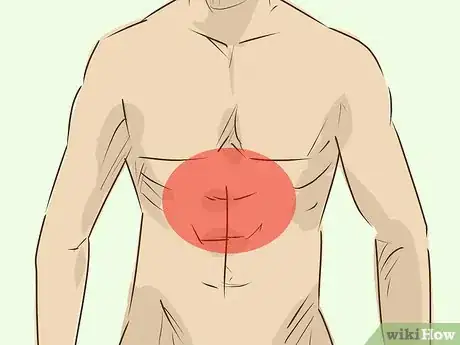


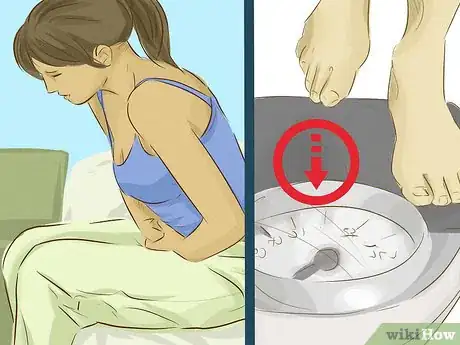
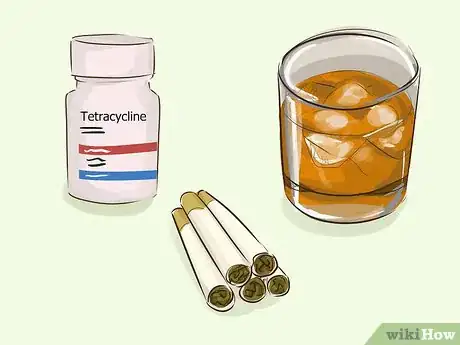


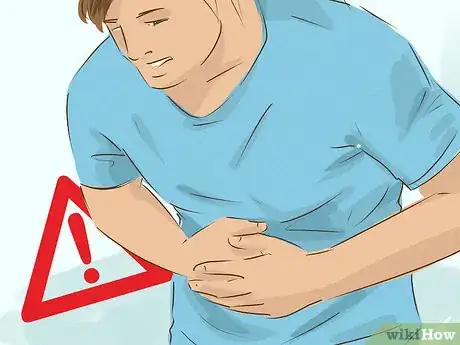
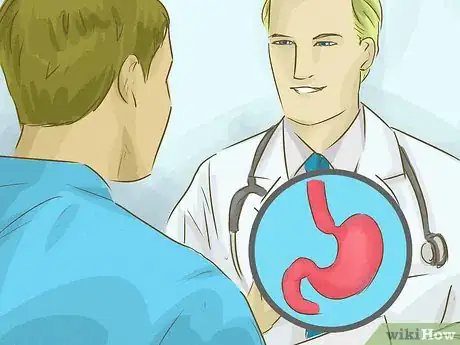
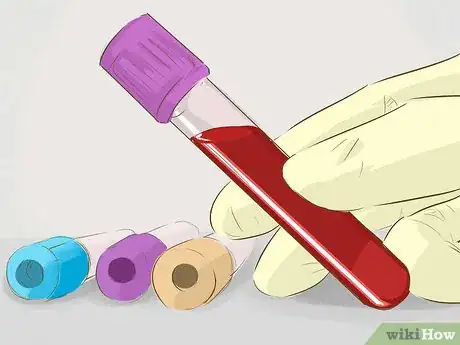
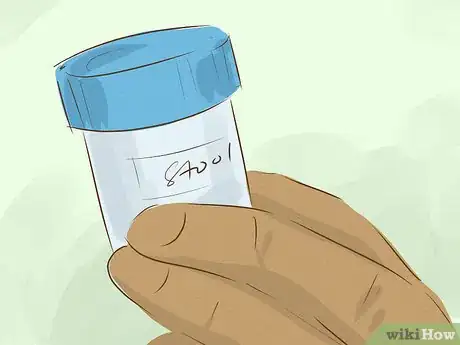
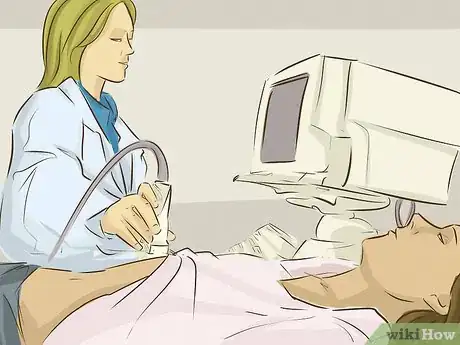
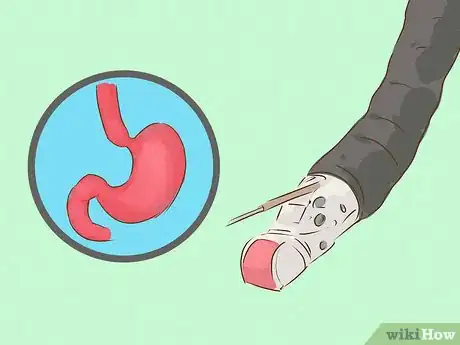
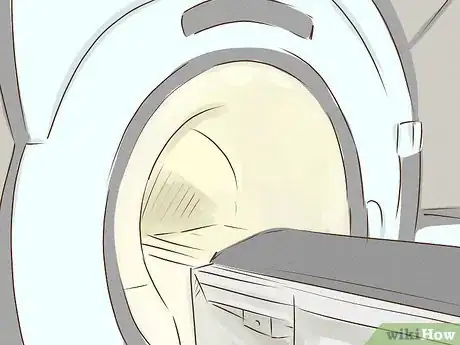
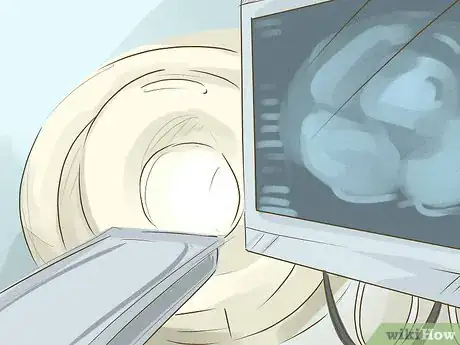
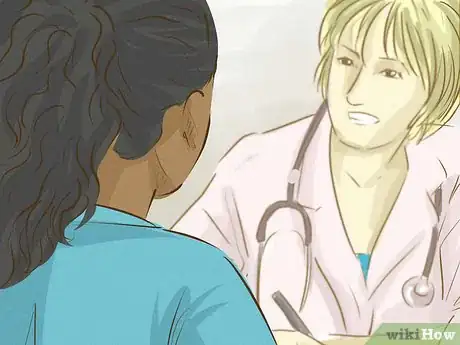


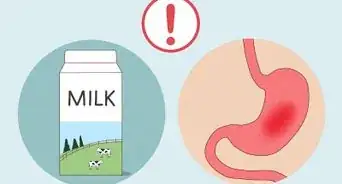
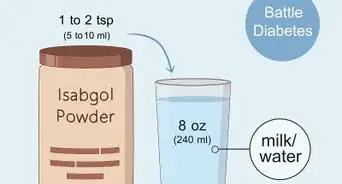


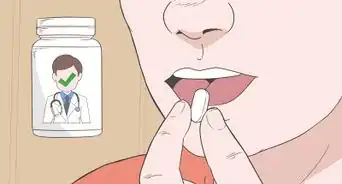



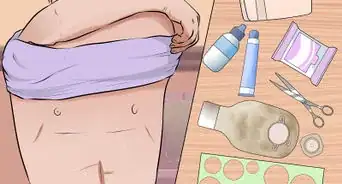
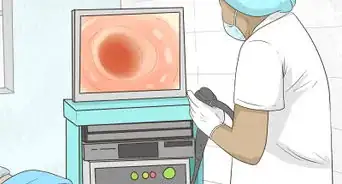










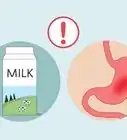
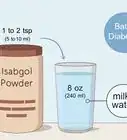





































Medical Disclaimer
The content of this article is not intended to be a substitute for professional medical advice, examination, diagnosis, or treatment. You should always contact your doctor or other qualified healthcare professional before starting, changing, or stopping any kind of health treatment.
Read More...